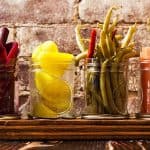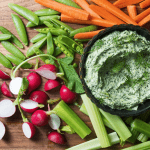So Proudly We Kale
When you hear the name “Michael Solomonov” images of fancy donuts, fried chicken, hummus, and roasted lamb begin appearing in your head. Whether you have had the privilege of dining at Zahav or you managed to grab a free donut from Federal Donuts during exam week; it is hard to be a Philadelphian and not eat at least one of Solomonov’s delicious creations. His Israeli-American dishes bring fame to the culture he loves so much. And, now, he is talking about salads, and not that mid-afternoon, pre-dinner salad you’re thinking of. Instead, we are talking about salad… in the morning, for breakfast!
Not many Americans associate salads and vegetables with breakfast, but in Israel vegetables have long been the focal point of breakfast. Solomonov shares many of his recipes from Zahav in his new cookbook, Zahav: A World of Israeli Cooking, with a whole chapter of the book dedicated to salads. Solomonov says “You won’t find all of the dishes in this book at a single restaurant in Israel,” but continues by saying,“Together, though, they make an impression of cuisine that is evolving even as I write this.” So, just as Michael Solomonov allows his recipes to evolve, why don’t we let our breakfast routine evolve to include more salads and vegetables?
_____
Salad. For most of us, it’s a midday ritual to eat one quietly at our desks. Sometimes it’s part of a luxurious dinner like the great wedge salads of steakhouse lore.
But bowls of raw veggies rarely grace our tables at breakfast—even for the most die-hard salad fans among us. That’s not the case in Israel, where salad has long been the main breakfast event, explains acclaimed Israeli American chef Michael Solomonov of Philadelphia’s Zahav.

Photo: Michael Persico
The tradition started in British Palestine, when pioneers living on communal farms, or kibbutzim, woke early to work in the fields, breaking for a large midmorning meal of salads made from the vegetables they harvested: tomatoes, cucumbers, carrots, eggplant and peppers. “Everyone was in agriculture, and vegetables were cheap, so why not?” Solomonov says.
Read more here.














